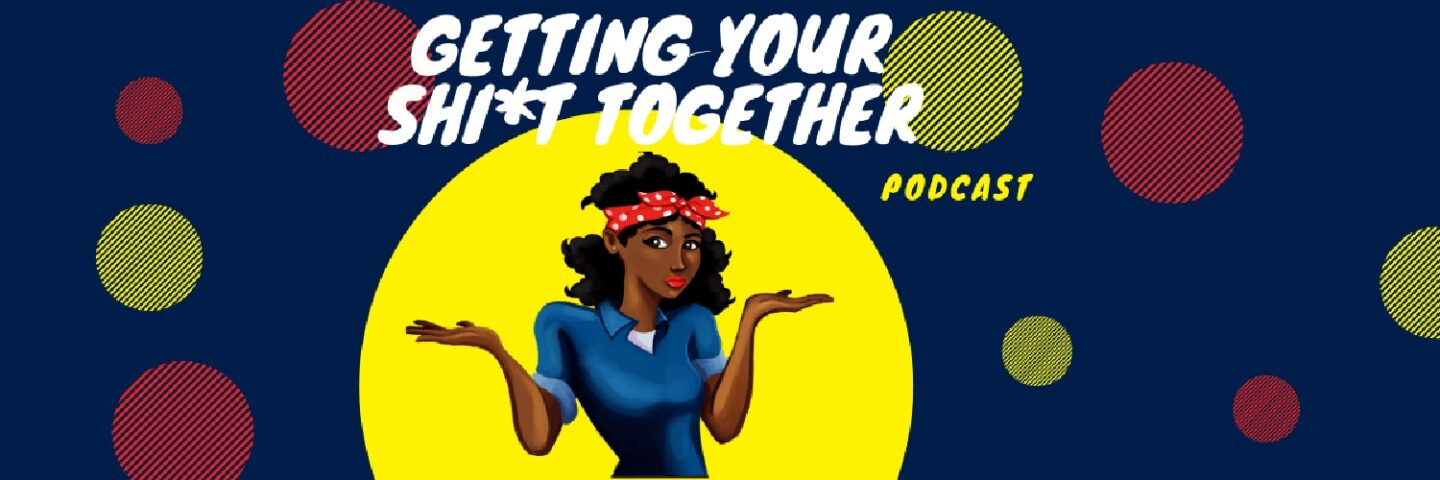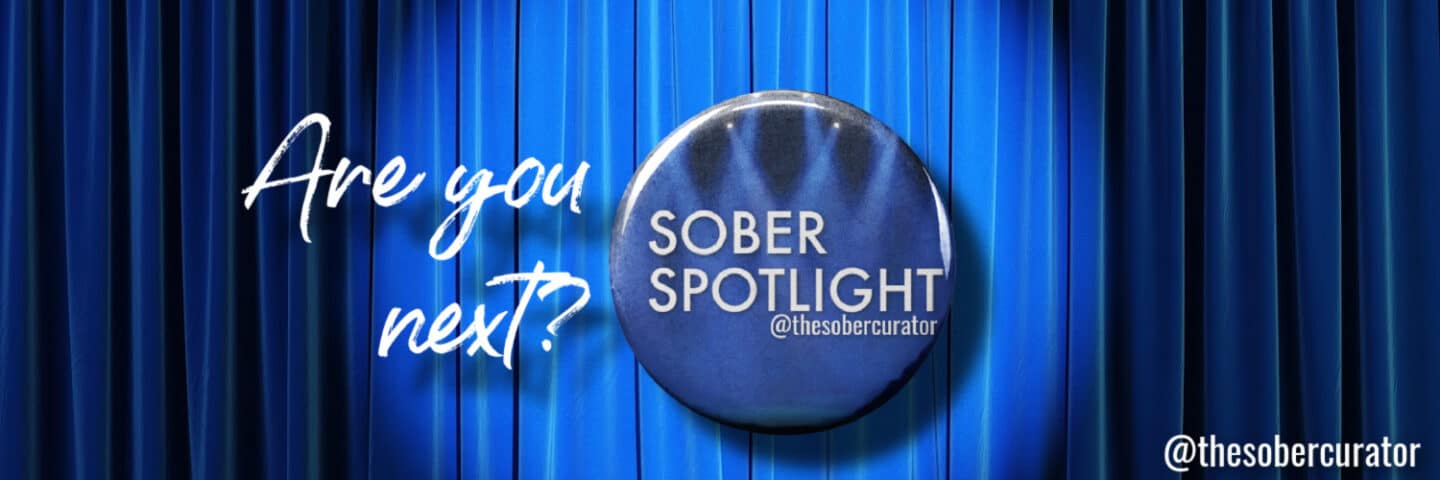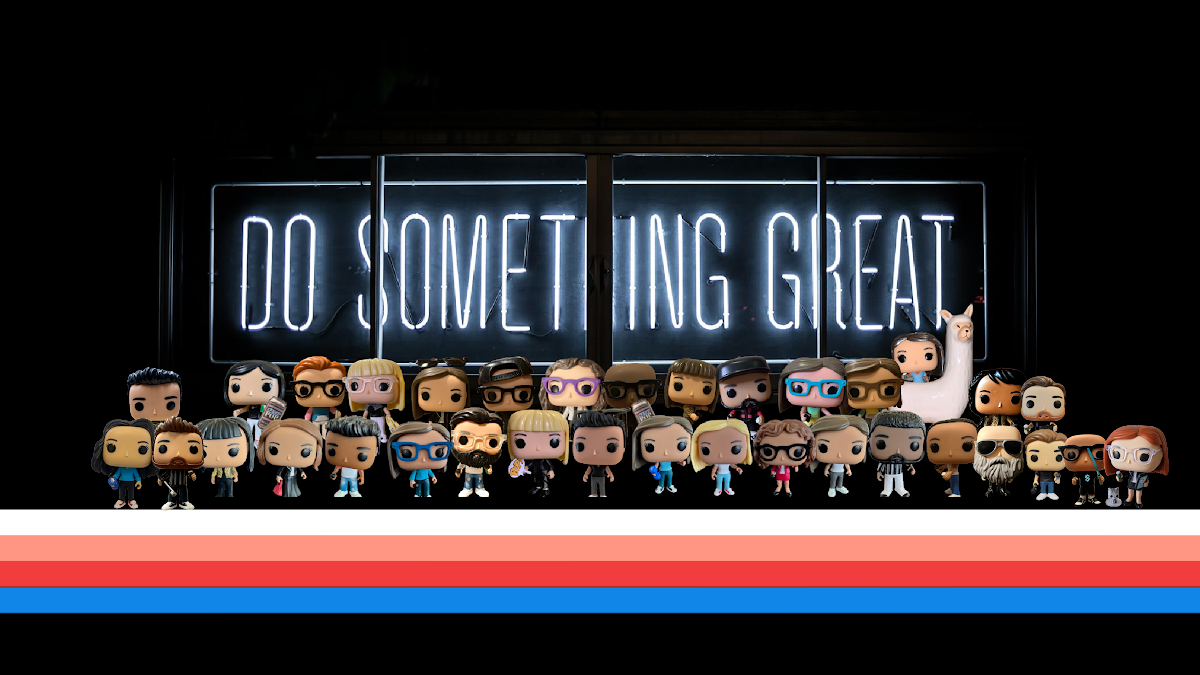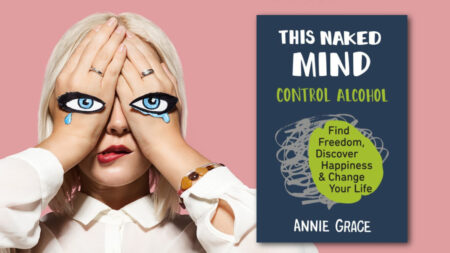
Cynthia Wright is a queer writer and military brat who has been crafting stories since she can remember. She works in project management at an NYC ad agency by day. This sober gal has cut her teeth on every type of marketing project imaginable.
After deciding to get sober in 2019, Cynthia decided to learn to live life on her terms. Crushing the stigmas associated with addiction and addictive behavior is very important to her, specifically with people of color. Through life recovery, she discusses addictive behavior and the nuances of trauma. How family, traumas, and various other life factors can quickly introduce “numbing” to people via addiction. Thus, the “Getting Your Sh*t Together” Podcast was born.
Outside of that, she is often a guest speaker on self-help/development podcasts. At each opportunity, she works to chat with her audience on topics ranging from leveling up, guilt/shame and self-acceptance, and toxic relationships (all types. She also loves using creativity as a form of healing. Always honest and transparent, she uses her storytelling skills to share her story in a way that will resonate with others. It’s important to Cynthia to encourage, inspire and let them know that there is always someone in their corner cheering them on!
When she’s not content creating, you can find her honing her writing and photography chops in the somewhat mean streets of Brooklyn!
Getting Your Sh*t Together with Cynthia Wright
I recently had the opportunity to get to know Cynthia over a zoom call. Cynthia talked to me about her process of getting sober. She was quick to admit she is very contrarian and that anything cliché is not going to be her thing. This military brat is very independent and has always actively sought out her own path in life. Towards the end of 2018, she knew it was time to check herself and make her health and mental wellbeing a priority.
Cynthia had tired of making poor decisions, losing her phone, and not loving herself. Things came to a head after a wild party that December back in 2018. It was time for a change. As the New Year loomed, she started cutting way back on her alcoholic consumption. She knew stopping cold turkey wasn’t going to work for her. Giving up alcohol for the New Year seemed so cliché, but she also knew she couldn’t keep going the way things were going. Plus, it also occurred to her that it could be easier to disguise her abstinence at work under the oh-so-popular Dry January movement. Most people wouldn’t question her decision. With a career in advertising, drinking is a huge part of that industry’s culture.
Cynthia did tell her therapist and a few of her closest friends. The first month wasn’t as bad as she thought it was going to be, but going out with friends was hard. She could smell the booze and found it triggering. This resulted in self-isolation for a period of time. Eager to figure things out on her own, she threw herself into therapy and returned to the gym. Cynthia also started journaling and reading. One book in particular that she found life-changing was Self-Compassion by Kristin Neff. It changed the way she treated herself and those around her. The healing process had finally begun.
Hello New York!
Cynthia’s commitment to Dry January and remaining sober for 31 days started paying off. She quickly discovered she didn’t have to even like being sober to benefit from the results. Soon she was starting to explore parts of the vibrant New York City she had never seen. She learned how to appreciate the present moment, to be where her feet were. Thanks to stair-stepping down that back half of December, thankfully her only physical side effect was extreme grumpiness. As time marched on, even that started to dissipate. Cynthia was soon in the pink phase honeymoon period of early sobriety. She talked about how coming in at such a low point, at first made it easy for things to immediately feel better.
Around Memorial Day weekend shit got real. Everything was going great until it wasn’t. Finally, the feelings came. So. Many. Emotions. So much crying, all the feelings. It was messy. Early recovery usually is. Cynthia got angry. She didn’t really know how to emote properly. She desperately wanted to be seen and heard but didn’t have much of a support group around her. Cynthia was mad, at literally everyone. She, her mom, her dad, her brother, and her friends. “If being sober is right, why do I feel like shit?” was the underlying current of most days.
Finally, she broke down and told her dad she was an alcoholic. It was a life-changing kind of conversation. The result of that conversation led Cynthia to her first Alcoholics Anonymous meeting. She found that experience hard and not welcoming.
Getting Sh*t Together Podcast was Born
In August of 2019, she started her podcast. At first, it really felt like a form of therapy. Cynthia had originally wanted to start a podcast about career changes late in life. But she realized, what she really wanted to talk about was what she was going through personally at that time. Attending Queer and black/brown AA meetings still didn’t feel like the right place for her. She was having a really hard time finding people she could identify with. Cynthia knew if she was feeling that way, certainly, there must be others going through the same thing.
At first, it was messy. Cynthia admits to being a shoot from the hip kind of gal. (My kind of gal, for sure!) She admits she didn’t have it all together when she started the podcast and she still doesn’t. She simply tries to be a good person and to keep evolving and learning. Getting Your Shit Together isn’t about getting to a destination, she said, it’s really about the journey.
By the end of our zoom call, I knew I wanted Cynthia to join our Sober Curator Squad. We are currently made up of a bunch of women (17 in fact, covering three countries and two continents!) from all walks of life, all lengths of sobriety, and various cultural backgrounds that are all striving to get our shit together, one day at a time.
Welcome Cynthia!

Q & A with Cynthia Wright, Founder of Getting Your Sh*t Together Podcast
Favorite Alcohol-Free Beverage of Choice: I love Ginger Beer. Reed’s Ginger Beer is my favorite brand.
Favorite #Quitlit or Self-help Book: Self-Compassion by Kristin Neff
Sober Curator Pro Tip: Be on the lookout for Cynthia’s review of this book in the upcoming months!
If you could go back and give your newly sober self a piece of advice, what would it be? You don’t know what you don’t know and that’s ok. You can learn.
How has recovery impacted your career? My head is clear, I get things done. It’s awesome to live a life hang-over free. I’m able to set better boundaries and I no longer do things I don’t want to do.
How do you practice self-care? I love spa stuff! Air purifying, facial masks, exfoliators, and all the skincare things. I even make some of my own scrubs. I also have found a love for gardening, including flowers, succulents, sunflowers, and veggies.
What’s a guilty pleasure? True Crime documentaries on YouTube. I love them!

More from Cynthia…
Any advice you have to share with someone considering going public with their recovery? You can be public if you want to, but you can also pull back and stop being public at any time. You also don’t have to talk about it all of the time. Figure out where your comfort zone is and where you want your boundaries to be. Only you can dictate that and you have the right to change your mind about things at any time. You don’t need to compete with the Sober Jones’. This is your personal story, your personal journey. You do you. Social media impacts your mental health. Take breaks. Just because people aren’t responding doesn’t mean that they aren’t listening or watching. Your message is probably extending a lot further than you realize. Owning who you are, that’s brave.
Do you have a favorite nonprofit? Mercy Ships – Globally, 5 billion people lack access to safe surgery. Children, teens, and adults suffer and die every day from treatable causes, and one child in eight will die before age 5. Mercy Ships deploys hospital ships to combat this overwhelming statistic. Since over 50% of the world’s population lives near a coast, their ships are the best way to reach them with state-of-the-art medical care.
What’s on repeat on your playlist right now? DMX, may he RIP. He was an honest dude. DMX spoke openly about his upbringing, mental health issues, and addiction. He was unapologetic, in pain, and he was very much aware. I’ve also been binging to the oldies – 60s vibes. I’m also trying to learn French, so listening to quite a bit of content to learn that language.
Do you have a favorite pop culture moment: When the movie Moonlight won an Oscar.
Favorite TV Shows or Movies where addiction and/or mental illness play a leading role? Mr. Robot and I’m just getting ready to start to Feel Good.
I hope you have enjoyed getting to know Cynthia as much as I have. One thing is for certain, this gal has a ton of moxie and a great future ahead of her. Be sure to check back in for updates from Cynthia, she’s the kind of person that when she talks, I most definitely want to be listening to. The Queer and black/brown recovery community is so underrepresented and I have no doubt that Cynthia’s contributions to it will be far-reaching. Welcome to the squad Cynthia! Let’s get this sober party started!

The Sober Spotlight section of our site highlights extraordinary people in recovery. We love sober people! Sober small business owners doin’ their thing gives us all the feels. We also spotlight brands that cater to sober living and give back to recovery. Who is making a difference in your recovery community? If you know someone we should spotlight please connect with us at thesobercurator@gmail.com or DM us on social media.

Resources Are Available
If you or someone you know is experiencing difficulties surrounding alcoholism, addiction, or mental illness, please reach out and ask for help. People everywhere can and want to help; you just have to know where to look. And continue to look until you find what works for you. Click here for a list of regional and national resources.
Resources are available
Resources Are Available
If you or someone you know is experiencing difficulties surrounding alcoholism, addiction, or mental illness, please reach out and ask for help. People everywhere can and want to help; you just have to know where to look. And continue to look until you find what works for you. Click here for a list of regional and national resources.










